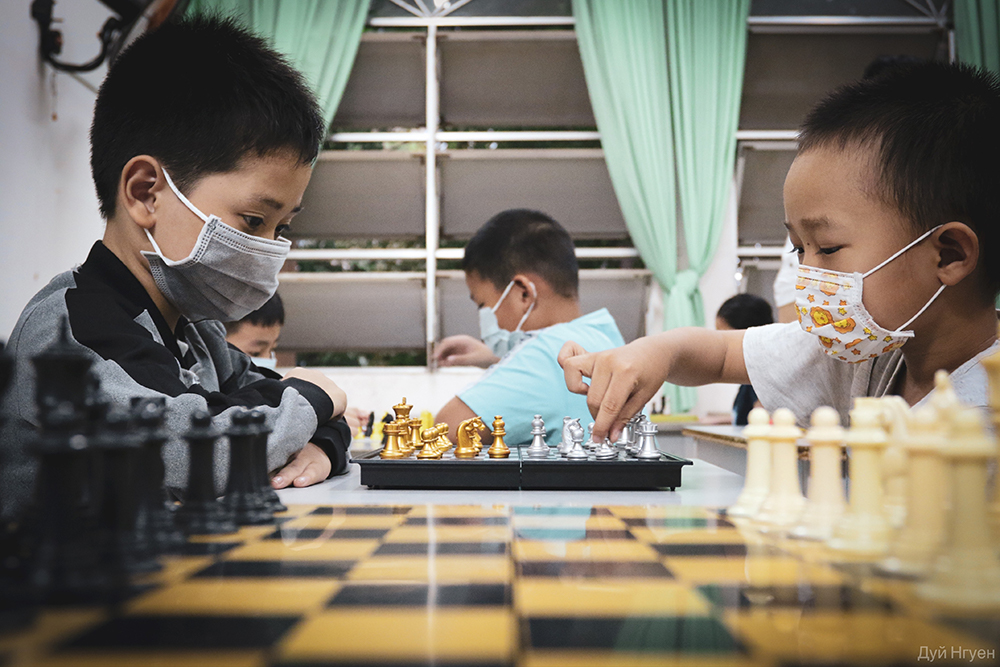
Should You Teach Kindergartners to Play Chess?
The benefits of chess for adults and the elderly are well-documented, but is chess good for children? Yes, teaching your kindergartner chess can help improve their cognitive functions, increase social interactions and it creates a framework to improve to learn math and science more easily. Whether you decide to teach your child yourself, or use one of our chess programs, the skills they learn in chess as a child can help them throughout their life.

Can Kindergartners Learn Chess?
Yes, there are many chess programs that start as young as three, but generally speaking,students can learn best when they can count to eight and know the alphabet, both needed to discuss positions on the board. That’s all it takes to get started in chess. One of the great elements of chess is that people of any age or skill can play and even compete with each other using a variety of game balancing techniques. In general, kindergartners can pick up the rules pretty easily. In fact, Magnus Carlsen, the current highest rated player in the World, learned to play chess at five years old, and was already competing in tournaments at eight.
Is Chess for Kindergartners a Good Idea?
Chess is a great benefit to young children all over the world. For kids as young as five, starting to learn chess can be as exciting as it is educational. Chess is a fun pastime for children, that gives them a break from modern video games, and has many educational elements. One study found that students that engage in chess programs score better on reading tests and read more than students that don’t. Although there’s nothing to suggest a connection between reading and chess, it proves that chess is a useful tool for educators to enhance learning in their classroom.

No one understands the benefits of chess more than the people that play it. Chess master Peter Dauvergne, who is also a professor of political philosophy, has shown that playing chess can raise children’s IQ, strengthen their problem solving, enhance reading, memory and language skills, and can improve decision-making under time pressure. Dauvergne argues that chess should be in schools around the world as a valued teaching method. Another important factor, he says, is that chess can be used to help children prepare for decision-making in a world with more and more information available.
Can Chess Improve Students Math and Science abilities?
Chess can be a useful tool when it comes to teaching about math and science. Chess uses a variety of techniques, many of which involve simple math to figure out. One example might be a situation where a white pawn and black pawn are both racing down the board and the child has to calculate which will queen first. The beginner will count each square the pawn has to walk through, while a more experienced chess player will simply understand how many moves it takes. This transition from counting to understanding can have a more useful effect for children. They may go from counting the numbers to simply understanding how many are there, which will improve their overall understanding of math.

Tactics in chess often involve using shapes like rectangles, triangles, and occasionally zig-zags. These tactics can help children later understand what these shapes are, along with understanding how the distances would look. For example, a chess player would likely understand that the rectangle must have at least two sides of the same length, since the shape appears so often along with the alphanumerics that act as measurements. It’s not uncommon to see the queen in chess make moves that look like a right triangle. Students learning chess will begin to understand what a right triangle is and the lengths associated with each side before they have even heard the phrase.
Can Chess Help Kindergartners Behave Better?
Yes, chess can be a tool for learning important social and moral skills for children.Two valuable tools that chess teaches are taking turns and sharing. The game of chess involves alternating turns for white and black, so both players will have to learn to let the other player have a turn. In addition, whenever a piece is taken by the other player, the chess player has to give their piece to the other player until the end of the game. These simple interactions allows kindergartners learn that it’s okay to share and take turns.
The game of chess almost always has a winner and loser, especially for children just starting out. Not only does this help children understand the benefits of improving oneself, it also starts teaching children about how to lose gracefully. As they play more and more, they will lose more and understand that losing isn’t as bad as they may have thought in the beginning. These seemingly simple interactions provided by chess can train lifelong emotional skills for children.
What are the Benefits of Chess for Kindergartners?
Chess programs in schools are a great help to the educators that know how to implement them. A study in 2021 found that when students were asked about the benefits of chess programs at their schools, they felt it helped them work better with teachers, work harder on schoolwork, improve grades, and helped them feel more successful in school. Chess programs in schools can help kindergartners enjoy education more while teaching them valuable skills they’ll use in school.

Another benefit of chess programs is the ability to help gifted students stand out on skill alone. In chess, all that matters is the moves on the board, which can help give confidence to kindergartners that may struggle to stand out or find a group of friends in the classroom. Similarly, sometimes gifted students will struggle with classwork or speaking up to answer in the classroom. Chess programs give educators the opportunity to see and foster these gifted individuals, even if their skills haven’t shown up yet in classwork.
Should Young Students Learn How to Play Chess?
Yes, students as young as four or five can benefit from learning chess. Chess programs in schools are a great method for educators who want to use chess to improve the lives of their students. It’s been proven to enhance their abilities in reading, math, science and decision making and it can help them train lifelong skills like sharing and losing gracefully. For educators, it can be used to identify gifted students and helps with bonding in the classroom. Most importantly, people of all ages enjoy playing chess, and giving the gift of chess to kindergartners means they will have a fun game that improves important skills for the rest of their life.
Who is Grandmaster Mac?
GrandmasterMac is a chess coaching organization founded and run by Grandmaster Mackenzie Molner. Grandmaster Molner has finished top 3 in the US Open Chess Championship twice and has won the New Jersey State Championship twice in his career. He has played for several teams in the US Chess League and currently plays for and co-founded the Montclair Sopranos of the Chess PRO League.
Molner has coached in the World Youth Team, the top international group youth chess tournament, and coached hundreds of students individually, and in groups. GrandmasterMac provides school programs throughout the New York and New Jersey area and a selection of specialized lessons online. If your school is in need of a chess program or after-school program, you can find more information about our programs here.
